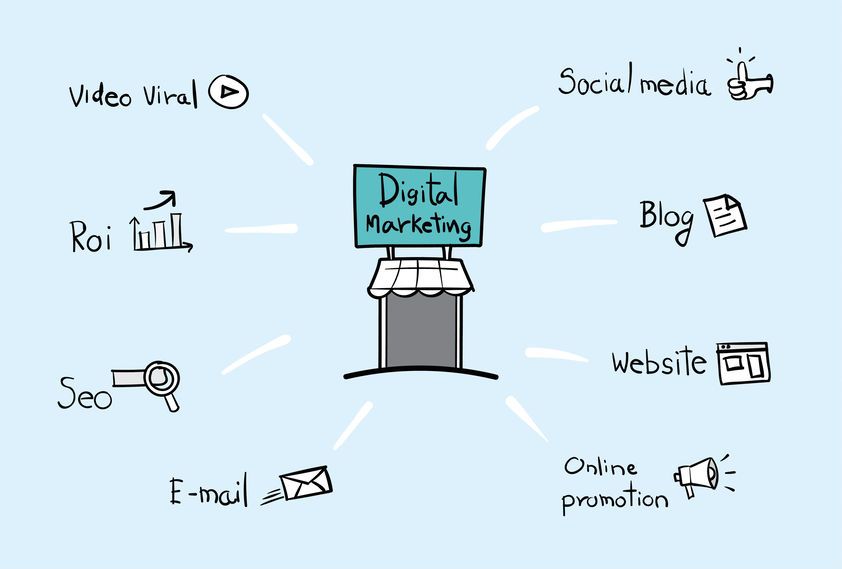While terms like “clicks” and “engagement rates” are hot buzzwords in the marketing industry right now, they don’t necessarily paint the clearest scenario of how your bottom line is being impacted. To truly come to terms with how the various elements within your digital marketing strategy are affecting your business (and to see if you’re getting the most bang for your buck), you’ll need to measure your digital marketing ROI.
But, first, let’s clarify what a digital marketing strategy looks like.
A digital marketing strategy, in a nutshell, is basically how you plan to achieve your company’s marketing goals, and which online channels you’re going to use to get there. It specifically lays out how you’ll not only reach your audience, but keep them engaged throughout your customer journey, and then measure your success.
One major mistake many marketers make is failing to craft a subsequent plan to measure one’s digital marketing success. But, if there’s no method to track success, how can you truly determine if your tactics are working?
Though digital results can take weeks or even months to unfold, there are some things you can do in the meantime to keep an eye on your progress and ultimately calculate to see if and how you’re getting the most bang for your marketing dollars.
Install Google Analytics
If you don’t already have analytics for your site, now’s the time. So, how does this impact digital ROI? By establishing a Google Analytics account for your website, you’re able to track the productivity of your Google Ads as well as receive detailed insight on the type of traffic that’s coming in to your site, like how many people are landing on your site, which social media channels are producing the most referrals, what device they’re using, your most popular pages, and more. By knowing these intricate web details, you’re in a better position to track your top performing channels and tactics.
Set up conversion tracking
Conversion tracking is a great way to measure ROI across many of your marketing channels, like AdWords, Facebook, Twitter, etc. It can tell you if you’re converting a user or visitor into a renter and which platforms are creating the most engaged users. Google Ads already offers conversion tracking data through their reporting features that even extends to phone calls. You can also place a custom tracking tag on a webpage of your choosing which leads from your specific ad. With this tool, every time a user clicks on your ad and performs an action that you determine in advance on your page (ie: clicks to complete an application, sends an email, etc.), you can track it. If social media is a part of your digital marketing strategy, you’re able to actually incorporate conversion codes into your Facebook and Instagram accounts as well as establish objectives for your conversions.
Know your KPIs
Another effective way to calculate your digital marketing ROI is by understanding and tracking your key performance indicators (KPIs). So, apart from click-through rates and conversion rates, you should also consider tracking things like cost-per-click, cost-per-action, unique monthly visitors, in addition to general performance metrics like page load time, average time on page, and reach. These numbers will help you determine if there’s an issue with your actual site versus a poorly performing campaign.
Rentbot can help.
SEO provides the best long-term ROI for your marketing dollars, and that’s where we can help. Whether you’re interested in a new Rentbot website or advanced SEO services, we can make digital marketing simpler, effective and budget-friendly. We’ll work with you to review your marketing challenges and property needs, then design a customized plan to improve your ROI.
But, it doesn’t end there. Following implementation, we’ll continue to keep you updated with your marketing performance (and make it super simple to judge ROI) along the way. It’s time to get started. We’re here to help. Schedule your free consultation here.
About the Author
Jonsette Calloway joined the Rentbot team in 2015. With a background in public relations, advertising and copywriting, she has helped a multitude of clients achieve their marketing and communications goals within various fields, but she particularly enjoys working with the apartment industry.

